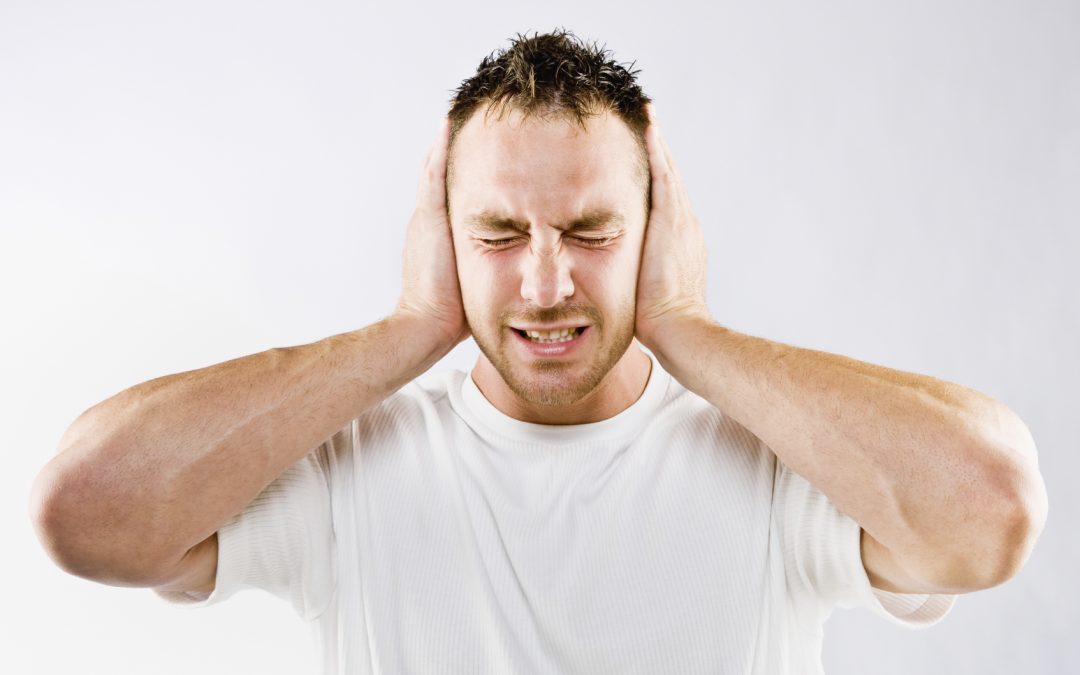Effective Tinnitus Relief Methods To Help Soothe The Noise
This intrusive noise can significantly disrupt daily life, causing distress and impacting overall well-being. However, there is hope for those seeking respite from tinnitus-related symptoms through effective tinnitus relief methods.
Author:Karan EmeryReviewer:Katharine TateMar 04, 20241.3K Shares27.3K Views

Tinnitus, often described as a persistent ringing, buzzing, or hissing sound in the ears without any external source, affects millions of individuals worldwide. This intrusive noise can significantly disrupt daily life, causing distress and impacting overall well-being.
However, there is hope for those seeking respite from tinnitus-related symptoms through effective tinnitus relief methods. By exploring various strategies and interventions tailored to alleviate the perception of tinnitus, people can find relief and regain control over their auditory experiences.
Sound Therapy
Sound therapy is a non-invasive approach to managing tinnitus that uses external sounds to mask or distract from the persistent ringing or buzzing in the ears. By introducing soothing sounds such as white noise, nature sounds, or music, sound therapy aims to reduce the perception of tinnitus and alleviate associated distress.
This method can be delivered through various devices like white noise machines, smartphone apps, or hearing aids equipped with sound generators. Sound therapy provides relief by helping individuals shift their focus away from the tinnitus sound, promoting relaxation, and improving overall well-being for those affected by this challenging condition.
Hearing Aids
Hearing aids are devices designed to improve hearing for individuals with hearing loss, and they can also provide relief for those experiencing tinnitus. By amplifying external sounds, hearing aids not only enhance communication and sound perception but also help mask the ringing or buzzing associated with tinnitus.
These devices come in various styles and technologies to suit different degrees of hearing loss and personal preferences. Hearing aids equipped with special features like tinnitus maskers or sound generators can specifically target the tinnitus sound, making it less noticeable and more manageable.
Cognitive Behavioral Therapy (CBT)
Cognitive Behavioral Therapy (CBT) is a therapeutic approach that focuses on changing negative thought patterns and behaviors to address various mental health challenges, including tinnitus-related distress. In the context of tinnitus management, CBT helps individuals develop coping strategies to reduce the emotional impact of the condition and improve overall well-being.
By identifying and challenging unhelpful beliefs about tinnitus, CBT aims to promote acceptance and adaptation, ultimately empowering individuals to live more fully despite the presence of tinnitus. Through techniques such as relaxation exercises, cognitive restructuring, and exposure therapy, CBT equips individuals with practical skills to effectively manage their tinnitus-related symptoms and improve their quality of life.
Acoustic Neuromodulation
Acoustic neuromodulation is an innovative approach to tinnitus management that involves the use of specialized devices to deliver specific sounds or frequencies to the ears. The goal of acoustic neuromodulation is to retrain the brain's response to the tinnitus sound, ultimately reducing the perception of ringing or buzzing.
By providing tailored auditory stimulation, these devices aim to promote neural plasticity and desensitize the brain to the tinnitus signal over time. While research on acoustic neuromodulation is ongoing, preliminary studies suggest promising results in terms of alleviating tinnitus-related symptoms and improving quality of life for individuals affected by this condition.
Tinnitus Retraining Therapy
Tinnitus Retraining Therapy (TRT) is a comprehensive treatment approach for managing tinnitus that combines sound therapy with counseling techniques. TRT aims to help individuals habituate to the perception of tinnitus by teaching them to reclassify the sound as unimportant. This is achieved through the use of low-level, broadband noise generators to provide background sound enrichment, which helps to reduce the contrast between the tinnitus and silence.
Counseling sessions are employed to educate individuals about tinnitus, address negative emotions associated with the condition, and facilitate coping strategies. By promoting habituation and reducing emotional distress, TRT can significantly improve quality of life for individuals living with tinnitus.
Avoiding Triggers
Avoiding triggers is an essential aspect of managing tinnitus, as certain factors can exacerbate symptoms and increase the perception of ringing or buzzing in the ears. Common triggers include exposure to loud noises, caffeine, nicotine, stress, and fatigue. By identifying and minimizing exposure to these triggers, individuals can reduce the intensity and frequency of tinnitus episodes.
This may involve using ear protection in noisy environments, moderating caffeine and nicotine intake, practicing stress management techniques such as relaxation exercises or mindfulness, and prioritizing adequate rest and sleep. Taking proactive steps to avoid triggers can help individuals better control their tinnitus and improve overall quality of life.
Diet And Lifestyle Changes
When it comes to tinnitus management and general health, dietary and lifestyle adjustments are paramount. A healthy diet that includes plenty of veggies, whole grains, lean meats, and fruits might help with general well-being and maybe even reduce tinnitus symptoms in the long run. You can also lessen the impact of tinnitus episodes by cutting less on coffee, alcohol, and sugary and salty foods.
In addition to lowering stress and increasing blood flow, regular exercise also improves the quality of sleep, which is crucial for managing tinnitus.To keep the auditory system healthy and reduce the likelihood of tinnitus worsening, it is recommended to avoid loud noises and develop excellent habits of using hearing protection. People with tinnitus can take charge of their condition and make positive changes to their lives by adopting these habits.
Alternative Therapies
If you're looking for an alternative to traditional medicine for your tinnitus, consider exploring alternative remedies. Alternative treatments for tinnitus include acupuncture, hypnotherapy, and herbal supplements, which some people find helpful. There may be conflicting scientific evidence for these claims, but anecdotal evidence suggests they can help with stress reduction, relaxation, and tinnitus.
People with tinnitus who are thinking about trying alternative therapies should talk to their doctors first and do their homework on the pros and disadvantages of each before adding them to their treatment plan. These methods may not be effective for everyone with tinnitus, but they can supplement standard therapies and be a great help.
Seeking Professional Help
Expert advice and support customized to individual needs can be provided by healthcare specialists specializing in audiology or otolaryngology, therefore it is crucial for persons living with tinnitus to seek professional treatment. These experts can determine the root causes and severity of tinnitus through comprehensive evaluations, and then craft individualized treatment programs.
Healthcare providers can provide a variety of evidence-based interventions to improve quality of life and decrease symptoms of tinnitus, including hearing aid recommendations, counseling, and cognitive behavioral therapy. They can also treat any underlying medical issues that may be causing tinnitus and work with other medical professionals as required to offer patients with the best possible care for this difficult illness.
Tinnitus Relief Methods - FAQ
How Do I Stop My Ears From Ringing?
If tinnitus is especially noticeable in quiet settings, try using a white noise machine to mask the noise from tinnitus. If you don't have a white noise machine, a fan, soft music or low-volume radio static also may help. Limit alcohol, caffeine and nicotine.
Can Tinnitus Go Away?
While there's no cure for chronic tinnitus, it often becomes less noticeable and more manageable over time. You can help ease the symptoms by educating yourself about the condition - for example, understanding that it's not dangerous. There are also several ways to help tune out the noise and minimize its impact.
What Makes Tinnitus Worse?
Things that made tinnitus better included noise (31%) and relaxation (15%). Things that made tinnitus worse included being in a quiet place (48%), stress (36%), being in a noisy place (32%), and lack of sleep (27%). Almost 6% of patients suggested coffee/tea and 4% said certain foods made their tinnitus worse.
Conclusion
The path to tinnitus relief might be complex, but with commitment and perseverance, there are viable tinnitus relief methods that can greatly reduce symptoms and improve general health. Although there might not be a magic bullet for tinnitus, there are many other treatments that, when combined and adjusted to each person's unique needs, can alleviate the symptoms significantly. Keep in mind that there is hope; tinnitus sufferers can find relief and peace with the correct mix of tactics.

Karan Emery
Author

Katharine Tate
Reviewer
Latest Articles
Popular Articles
